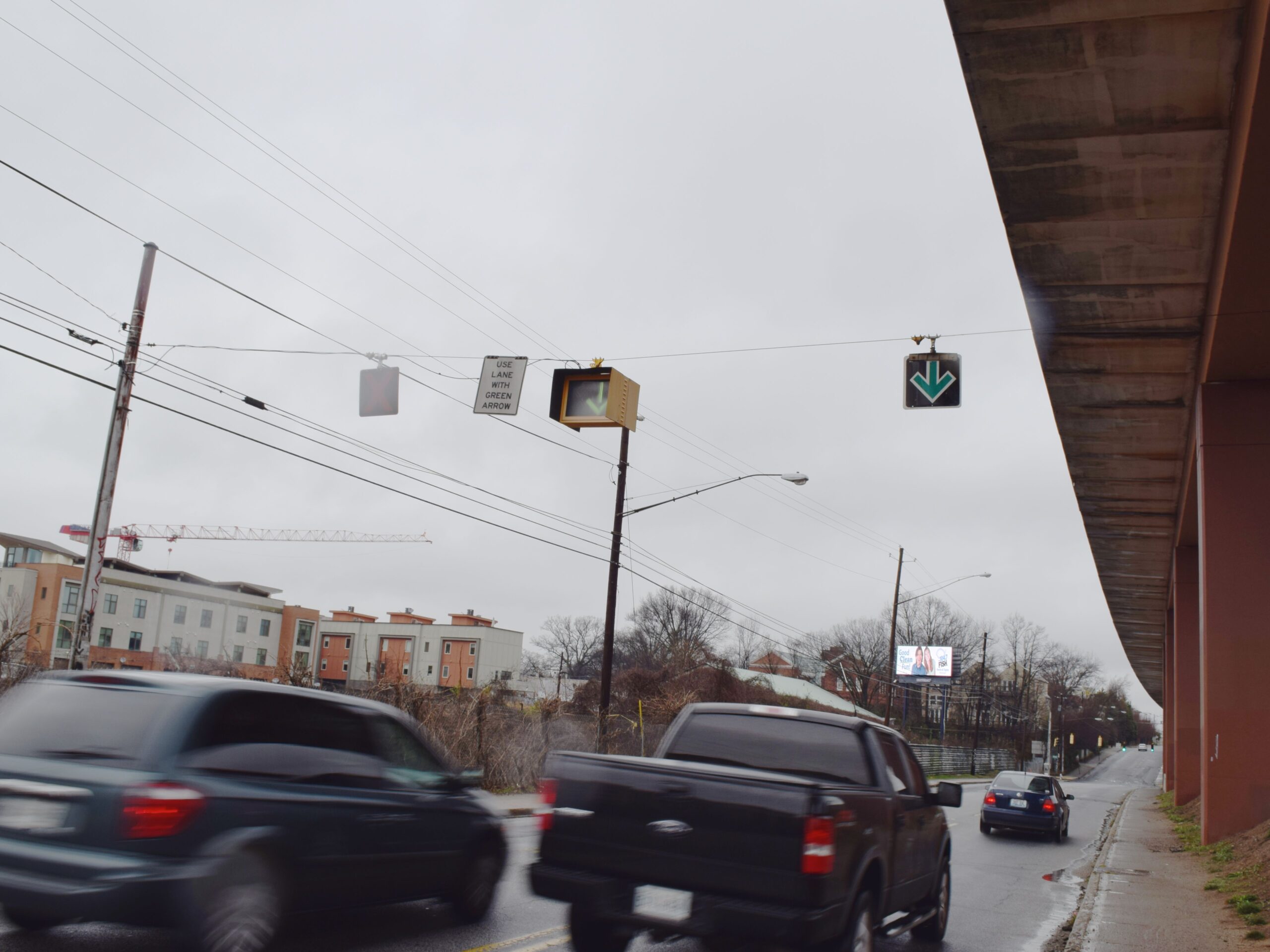Car-Centric Atlanta Remakes Roads For Bikes, Pedestrians

Alison Guillory / WABE
Atlanta is a car city. That’s how the roads are built. Transit is limited. There hasn’t been a strong network of paths for day-to-day cycling. Things are spread out.
But voters have approved spending on changing the city’s transportation infrastructure in a bond package last year and a sales tax last week.
Now big changes are coming to some of Atlanta’s major roads, in the form of an urban planning idea called complete streets.
“Complete streets are streets that are intended to be used by everyone,” said Faye DiMassimo, who manages the city’s Renew Atlanta infrastructure program. “The street itself has got to be able to accommodate the auto driver, the transit patron. It’s got to be able to accommodate the pedestrian and cyclist.”
Basically, everyone has to share the roads.
In a city where cars dominate, it’s a major undertaking. But Atlanta is putting a lot of money behind it.
About 25 major thoroughfares, from Cascade Road to Piedmont Avenue will get overhauls, funded either by the Renew Atlanta infrastructure bond package, or by the transportation sales tax on last week’s ballot.
DiMassimo manages some of those projects, including one on Howell Mill Road near Buckhead.
At a meeting a few weeks ago, the city collected feedback on the plan for that road.
A group of neighbors gathered around a map showing bike lanes, pedestrian paths and redesigned intersections was not convinced that the changes would be good for them.
“We are a commuter city and that is a commuter corridor,” said Melissa Yuhas.
People already have a hard time getting off the highway at night when they’re trying to get home, she said. She was worried the street into her neighborhood would get even more backed up, especially with new apartments being built. And, for her, there’s no reason to stroll or bike on Howell Mill.
“There’s no restaurants,” she said. “We’re not going to put kids on bikes up there.”
Earlier this year, neighbors shared similar feedback at a meeting in another part of town. People who lived near Fairburn Road on the Westside said, basically, “Nobody bikes here, why would you put in bike lanes?”
DeKalb Avenue, a busy commuter corridor that connects Decatur with downtown is also on the list for a “complete streets” makeover.
“When people tell me, ‘Nobody bikes on DeKalb,’ I say, ‘Well of course they don’t, would you?’” said Rebecca Serna, executive director of the Atlanta Bicycle Coalition. “It is definitely a chicken or egg issue.”
The proposal for DeKalb Avenue could include getting rid of a lane that reverses direction depending on the time of day. Instead, there would be turn lanes, and a bike lane.
Serna said those changes could slow down cars, but they could also make pedestrians, cyclists and drivers safer.
“We have been prioritizing putting cars through faster for a very long time in the city of Atlanta and in metro Atlanta,” she said. “I think there’s a growing recognition that we should be prioritizing people’s safety over their speed.”
So, which should come first, bike lanes or bikes? City of Atlanta Planning Commissioner Tim Keane said the answer is build first.
“This isn’t ‘OK, let’s wait until everybody’s out on these dangerous streets on their bikes, and then we’ll figure out what to do,’” he said. “If you build the infrastructure and you reform your streets and you make them safer for walking and cycling, people will use them. Lifestyles will change.”
And, he said the changes have to happen to deal with traffic.
“If you drive 100 percent of the time, you benefit from others not doing that,” he said. “That’s simply the only way to reduce congestion.”
The Atlanta Regional Commission expects Atlanta to grow by 2.5 million people by 2040. Keane said complete streets and denser housing will make room for them.
The approach also makes financial sense, said Joseph Hacker, who teaches urban planning at Georgia State.
“This is an inexpensive way of wresting more value out of roads that everyone who pays taxes has paid into, but only benefits the people that are driving on it,” he said.
And for the people whose commutes could get even longer because of complete streets?
“There will be some aggravation,” Hacker said.
But that’s in the short-term, he said. In the long-run, he thinks it is possible for the car-centric city of Atlanta to retrofit itself into a walkable, bikeable, transit-friendly city, at least near the BeltLine.
Complete streets are planned for neighborhoods all over town.
The public meeting for DeKalb Avenue is in Old Fourth Ward on Thursday evening.
9(MDAxODM0MDY4MDEyMTY4NDA3MzI3YjkzMw004))







